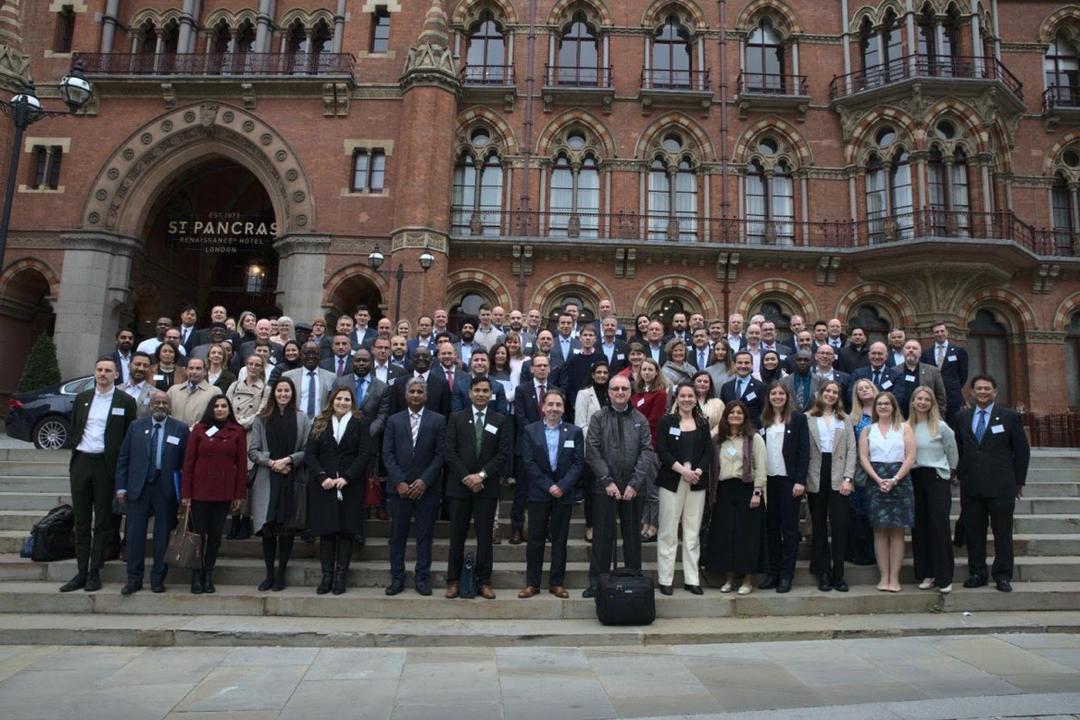The Independent Corrupt Practices and Other Related Offences Commission (ICPC) has been praised for the reform initiative it instituted at the Nigerian ports sector.
The commendation was made at the recently held Maritime Stakeholder’s meeting in London, in view of the ease of maritime activities at Nigerian ports and Turn Around Time for cargoes clearance and efficiency of Nigerian Ports.
The meeting, which was attended by about 133 participants across the globe, was organized by the Maritime Anti-Corruption Network (MACN), to among other things, learn about the ICPC interventions at the Nigerian Ports that led to the latest successes attained in the sector, and the processes put in place by the Nigerian government to address the challenges and trends faced by the maritime industry.
The Nigerian delegation was led by the ICPC Chairman, Prof Bolaji Owasanoye SAN, and Executive Secretary of Nigerian Shippers’ Council, Hon. Emmanuel Jime.
While addressing the participants, Professor Owasanoye highlighted the importance of the maritime sector to the Nigerian economy, and the reason ICPC had to intervene to make the Nigerian Ports more competitive and efficient.
Among the interventions engendered by ICPC in conjunction with other ports stakeholders were the development and harmonization of Standard Operation Procedures (SOPs), the establishment of a complaint mechanism in the form of the Ports Service Support Portal, the development of Nigeria Ports Process Manual, as well as the establishment of Ports Standing Task Team (PSTT) which was the compliance and enforcement arm of the interventions.
The ICPC boss however pointed out that in spite of these reforms there were still pockets of challenges that needed to be tackled including the issue of malfeasance in the Ports Corridor wherein cleared cargos are delayed by illegal checking points outside the ports.
He therefore reiterated the Commission’s commitment to deal with corruption or anything that would “constitute a drag to the achievement of Ports Reform’s goal,” assuring the MACN delegates that no infraction at the Nigerian ports would go unpunished.
Professor Owasanoye added that the Commission would continually beam its lights on the activities at the ports to further strengthen the competitiveness and efficiency, saying, “Corruption Risk Assessment and System Study and Review will be conducted periodically to engender efficiency of the port while mainstreaming compliance on mitigating plans, while the Commission will join other stakeholders in removing all illegal checkpoints and allow free flow of cargoes and services within the Ports corridors.”
The Executive Secretary Nigerian Shippers’ Council in his address itemized the function of the Council and its activities which made the federal government designate the Council as the Port Economic Regulator.
The highlight of the meeting was the report of the PSTT which all international Ports stakeholders at the meeting acknowledged as a game-changer that has made Nigerian ports more efficient. The seemingly intractable challenges encountered within the Nigerian ports were being tackled by the enforcement activities of the PSTT such that vessels Turn Around Time has reduced significantly.
In view of the acknowledged ease of transacting businesses at Nigerian ports as demonstrated by the PSTT, delegates from Egypt and Bangladesh requested the processes that led to the success story in Nigerian Ports should be replicated in their countries.


